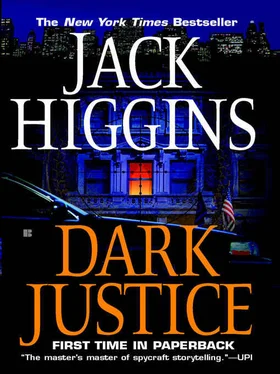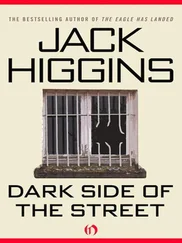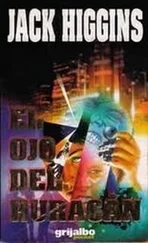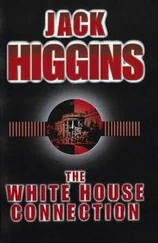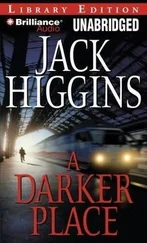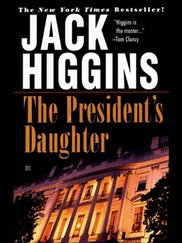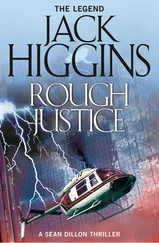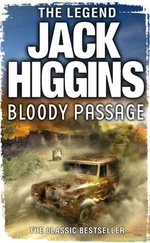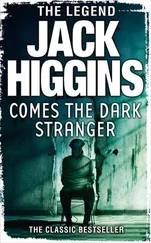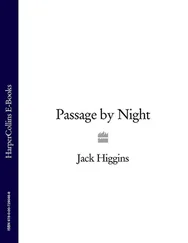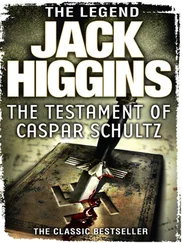Tod laughed. “Did you itemize his body count?”
“I didn’t want to frighten anyone off.” She pushed some other papers over. “Dillon’s friends, the Salters. The young one is as bad as Dillon and his uncle was one of the biggest gangsters in London in his time, so be warned.”
“If the need for any extras arises while we’re away,” she went on, “a car or something like that, you call Danny Malone. He’ll fix you up. He used to be a supplier for the Provos.”
“The only one left is Bernstein, the Special Branch Superintendent.”
“Huh,” Fahy said. “I’m not worried about her. Woman coppers should stick to desk work.”
“I wouldn’t be so sure. It says here that she shot dead a woman, a leading Loyalist hard-liner named Norah Bell,” Greta pointed out.
“And wasn’t she the original bitch from hell, Protestant or not?” Dermot said.
Tod smiled. “Well, we’ve all got our wicked ways. Norah’s were just a little bit more wicked than most. Is that it, then?”
“I’d say so. We’ll keep an eye on Bernstein,” Greta said. She put her papers in her briefcase, got up and asked Ashimov, “Shall we go?”
“I think so.” He nodded casually to the others. “Stay in touch at all times.”
“We have all your mobile numbers, so if we don’t hear from you, you’ll be hearing from us.”
As she and Ashimov went to the door, Tod said, “You don’t think we can pull this off, do you?”
“Well, pigs might fly.” Ashimov lit a cigarette.
Dermot said, “Is it because of Dillon?”
Greta said, “Let’s put it this way. I saw him in action in Iraq the other night, and if I hadn’t seen it for myself, I wouldn’t have believed it. So take care.”
She and Ashimov went out, and Fahy exploded. “Dillon – fuggin’ Sean Dillon. That’s all we hear about.” He reached for a raincoat. “I’m away out for a drink.”
“And I’m with you,” Regan told him. “What about you two?”
“We have things to do for our morning departure,” Tod said. “But watch it, you two. Stay out of trouble.”
They went out and Dermot put a large canvas bag on the table and opened it. He took out an AK-47 and passed it to Tod. “Give it a thorough check. I’ll do the other.”
“Pass me a silencer,” which Dermot did. “What about you? Do you really think we can pull this off?” Tod asked as he took the AK apart.
“We’ve done it before, we can do it again. We’re still here, aren’t we?”
“And so’s Sean Dillon. That’s the trouble.”
At about the same time, Belov landed at Ballykelly in the Republic, close to Drumore. Practically the first thing he did was phone Ashimov, who had just parked outside an Italian restaurant in Bayswater, Greta at his side.
“Bring me up to date,” Belov demanded.
Ashimov did. “It’s all in place.”
“A lot of what-ifs,” Belov said, “and I don’t like that.”
For once, Ashimov took the hard line. “No, I disagree. Kelly and Murphy have good reputations. Major Novikova’s spadework has been excellent. This lead to Huntley Hall looks more than promising. I think we’re in good shape.”
“All right, I hear what you’re saying. I’ll stay here until we get some sort of resolution.”
Greta said, “The great man?”
“Getting nervous. To hell with him. Let me buy you a nice dinner.”
Walking along Wapping High Street, Fahy said to Regan, “This Dark Man pub the Salters own can’t be far from here. Why don’t we have a look?”
“Sounds good to me.”
They made inquiries to a man at the newspaper stand on a corner, who directed them a couple of streets along to the left. They walked down between the old warehouses, came out on the wharf beside the Thames, and there was the Dark Man, a few cars parked nearby.
“The very place,” Fahy said. “Shall we go in?”
“Let’s take it slowly,” Regan told him, and at that moment, lights approached down toward the wharf and they stepped back into shadows. A Range Rover stopped. Billy Salter got out and went into the pub.
“It’s Salter,” Fahy said. “Let’s take a look.”
They peered in through one of the windows. The bar was busy, but Billy was talking to Dillon at the counter.
Regan said, “Jesus, it’s Dillon.”
Fahy said, “Are you carrying?”
“No, mine’s back in the weapon bag.”
“So’s mine. Christ. We could have taken a pop at him from the shadows.”
“That’s a fact,” Regan said, although there was a certain relief in his voice.
“Well, there’s one thing I can do.” Fahy took out a switchblade knife and pushed the button. He jabbed it into the two front tires, which started to deflate. “That’ll give Salter and bloody Dillon something to think about.”
They were laughing like schoolboys as they cleared off. There was a final hiss of air from the tires and then an old and ravaged bag lady in layers of clothes, a woolen hat pulled over her head, stepped out of the darkness and took a look. She turned, put down her bags and went into the bar. She tapped Billy on the shoulder.
He turned. “Now then, Gladys, not in the bar.”
“You’d better come outside, Billy, it’s the big car of yours.”
Billy frowned and Dillon swallowed his drink and went after him.
“The bastards,” Billy said outside. “Who was it, Gladys?”
“Couple of men in raincoats. It is raining, Billy. One of them had one of those funny knives where the blade springs up, and he stuck it in the tires. They were laughing. They said, ‘That will give Salter and bloody Dillon something to think about.’ ”
“Christ, if I get my hands on them.” Billy kicked one of the tires.
“They were Irish,” she said.
“Irish?” Billy said. “Bleeding Irish?”
“Hold it,” Dillon told him. “You’re sure, Gladys?”
“Oh, yes, they didn’t speak like you. I mean, you’re funny Irish. It was the other way.”
“Who in the hell’s got it in for me?” Billy said. “It doesn’t make sense.”
“Maybe it’s something to do with me,” Dillon said. “I know many Irishmen who could get very personal where I’m concerned. You’d better call the garage and see to the Range Rover. I’ve got to make a few inquiries. I’ll see you later.”
He hailed a cab on the High Street and told the driver to take him to Kilburn, where he started his rounds, working from pub to pub, talking to barmen, not that anything came up, but then it wouldn’t. The IRA weren’t operating in London. Those days had gone. And then, finally, there was the Green Man.
He went up the alley at the side, paused and peered in through the window. There he was, Danny Malone, a good comrade in the old days, but that was a long, long time ago. Danny was obviously going over his accounts, so Dillon tried the back door. It eased to his touch and he moved along the small hall, opened the door to the back room and went in.
Malone had been thinking about Dillon extremely uneasily since Kelly had mentioned him. In a sense, it had made him face up to what he was getting involved in, the kind of thing that had sent him to prison for fifteen years, and the fact that Dillon was involved made it worse. Now, he looked up and his face sagged.
“Sean, it’s you.”
“God save the good work, Danny,” Dillon said and added, when Malone said nothing, “God save you kindly was the response to that. You’re forgetting your manners.”
“I’m sorry, Sean, I was so shocked. I mean, it’s been years.”
“Oh, I’ve had you in mind always, Danny.”
Dillon lit a cigarette, and Malone’s smile was ghastly. “So you work for Ferguson and the Prime Minister now.”
“Oh, you know me, always the practical one. It got me out of a Serb prison. I was glad to hear they’d released you, Danny. Lucky for you the Peace Process came along when it did.”
Читать дальше
Конец ознакомительного отрывка
Купить книгу
